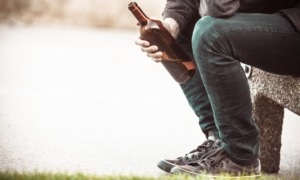 WASHINGTON — Kids who demonstrate so-called pro-social skills at a young age are less likely to end up in juvenile detention, be arrested or abuse drugs later in life, according to a new study published by the American Journal of Public Health.
WASHINGTON — Kids who demonstrate so-called pro-social skills at a young age are less likely to end up in juvenile detention, be arrested or abuse drugs later in life, according to a new study published by the American Journal of Public Health.
The study, which tracked a group of 753 kindergarteners for nearly 20 years, found that students who exhibited such skills as sharing, listening and cooperating with others while in school were more likely to have greater success in employment and education during early adulthood.
This study joins a growing body of research that shows the importance of noncognitive or “soft skills” to predict later outcomes, regardless of other factors such as where a child is raised.
Helping children develop those skills is “one of the most important things we can do as a society to prepare children for a healthy future, no matter where they live,” said Dr. Kerry Anne McGeary, who oversaw the research for the Robert Wood Johnson Foundation.
The researchers tracked kindergarteners from four schools in low-socioeconomic neighborhoods starting in 1991, controlling for family demographics, academic ability and other factors. Teachers gave each participant a social competence score based on his or her skills in cooperating with peers, being helpful and resolving problems independently.
[Related: Giving Up to Grow Up: Helping Youth Manage Relationship Trade-Offs]
Using school and court records, and reports from participants and their parents, researchers monitored the students’ lives until they turned 25, keeping track of their education, employment, crimes, substance abuse and mental health.
The results showed that students with higher social competence scores were more likely to graduate from high school and college and have a full-time job by age 25.
Students with lower competence scores had a higher chance of being arrested and spending time in juvenile detention. They also exhibited higher rates of binge drinking and marijuana use.
Marcy Mistrett, CEO of Campaign for Youth Justice, said school is an ideal setting to learn pro-social skills, but that they have been pushed out of the curriculum by an increased emphasis on academic performance.
Teachers “want the tools to help kids develop these skills, but they are no longer taught how to do that as teachers,” she said.
“I do think it is important for educators to see their role as helping to develop the ‘whole’ child, including supporting the development of children’s noncognitive skills,” Dr. Tamara Halle, co-director for early childhood development at Child Trends, said in an email. “However, educators must be adequately prepared, themselves, to effectively do this.”
Those tools can come from progressive school leaders and the establishment of a school culture that integrates social and emotional learning with academics, Mistrett said.
McGeary said the study shows there are many opportunities throughout a child’s life to develop pro-social skills — both in and out of school.
“This study documents that we as a nation, as a society, have a great opportunity to help children,” she said. “These social and emotional skills are skills that can be worked into multiple components of any child’s life.”
That includes after-school and summer programs, McGeary said.
“Out of school programs present a great opportunity to really help build social/emotional skills in young children,” said Kendra Rogers, managing director of early childhood at Children Now.
The structure and flexibility of such programs allow for creative approaches to developing those skills, and also allow adults to have more informal interactions with kids outside of a school setting, she said.
A 2014 guide by Public Profit said that out-of-school time programs are uniquely suited to the development of noncognitive skills, and recommended 16 strategies for youth organizations and schools to develop those skills.
This story debuted on our sister publication JJIE.org.
More articles related to this one:
Camp Fire Embraces Thriveology
Childhood Stressors Lead to Earlier Anxiety
Wraparound Services Surround Foster Youth, Families with Help































